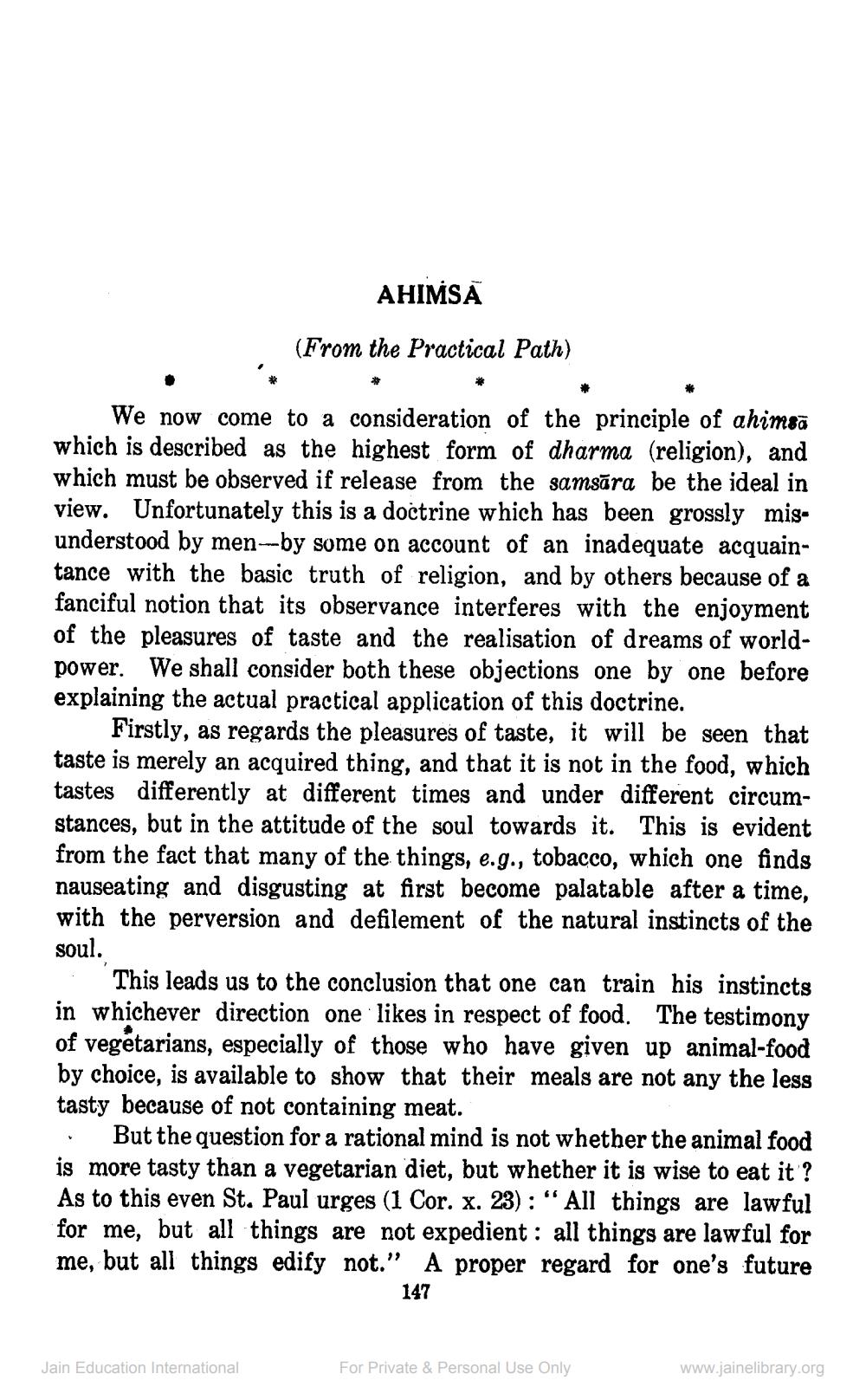________________
AHIMSA
(From the Practical Path)
We now come to a consideration of the principle of ahimsā which is described as the highest form of dharma (religion), and which must be observed if release from the samsara be the ideal in view. Unfortunately this is a doctrine which has been grossly misunderstood by men-by some on account of an inadequate acquaintance with the basic truth of religion, and by others because of a fanciful notion that its observance interferes with the enjoyment of the pleasures of taste and the realisation of dreams of worldpower. We shall consider both these objections one by one before explaining the actual practical application of this doctrine.
Firstly, as regards the pleasures of taste, it will be seen that taste is merely an acquired thing, and that it is not in the food, which tastes differently at different times and under different circumstances, but in the attitude of the soul towards it. This is evident from the fact that many of the things, e.g., tobacco, which one finds nauseating and disgusting at first become palatable after a time, with the perversion and defilement of the natural instincts of the soul.
This leads us to the conclusion that one can train his instincts in whichever direction one likes in respect of food. The testimony of vegetarians, especially of those who have given up animal-food by choice, is available to show that their meals are not any the less tasty because of not containing meat.
But the question for a rational mind is not whether the animal food is more tasty than a vegetarian diet, but whether it is wise to eat it? As to this even St. Paul urges (1 Cor. x. 23): "All things are lawful for me, but all things are not expedient: all things are lawful for me, but all things edify not." A proper regard for one's future
147
Jain Education International
For Private & Personal Use Only
www.jainelibrary.org




